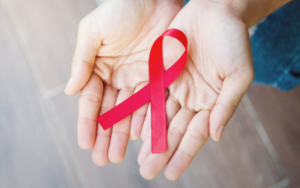
However, you must choose the life insurance company carefully because some insurers will decline your application and others may limit how much insurance they offer and the number of years they offer it over. It is extremely unlikely that the life insurance will cost the same as it would without HIV so be prepared for higher premiums. The amount of the increase may also vary between insurers. But do not let these put you off - most policies can be tailored to suit your budget.
Some people with HIV feel a sense of hesitation in disclosing their HIV status. It may reassure you to know that your life insurance application is treated confidentially and your permission will be sought before any request for additional information is made to your GP or specialist.
If you would like to read ahead for answers to specific questions, please use the links below:
- How to get the best and cheapest life insurance if you have been diagnosed with HIV?
- How to apply for life insurance with HIV
- How much does life insurance cost if you are HIV positive?
- Can I buy critical illness insurance if I am HIV positive?
- Can I buy sick pay insurance if I am HIV positive?
- Will my existing life insurance be invalidated by a positive HIV test?
- Will my partner's HIV status affect my life insurance application?
Understanding HIV for Life Insurance
HIV is a virus that is transmitted through body fluids such as blood, semen, vaginal or anal fluids and breast milk. The most common way that the HIV virus is transmitted is through anal or vaginal sex without a condom. It is also transmitted through contaminated needle exposure, intravenous drug use and sometimes from mother to baby, through pregnancy, birth or breastfeeding.
The virus usually causes an initial period of illness that may be much like flu-like symptoms. However, the symptoms can disappear after this acute period leaving the virus to attack the immune system without detection. Late diagnosis could mean that the virus has already caused some damage to the immune system therefore early testing to ascertain your HIV status after exposure is widely encouraged.
HIV is treated using antiretroviral medications (ART). The virus can usually adapt to one type of medication so the treatment usually includes a combination of medications. These are quite effective and can significantly reduce the viral loads amongst HIV patients to a non-detectable level. The key to success is linked to taking all of the prescribed medications every day as recommended. If you have been diagnosed with HIV and an undetectable status can be sustained for 6 months or more then it can be concluded that the virus is undetectable=untransmittable (U=U).
Is HIV excluded from life insurance policies?
As we explain in the rest of this article it is possible to get life insurance with a positive HIV status. If you have an existing policy you should read the policy's key features document which will highlight any exclusions. It is unusual for life insurance policies to specifically exclude claims linked to HIV. Amongst standard exclusions, it is common to find an exclusion for death caused by drug or alcohol abuse.
How to apply for life insurance with HIV
There are a few different ways to apply for life insurance. You can apply online directly with a life insurance company or via a comparison website. These are not helpful unless you have knowledge that the insurance company will accept you and offer you fair terms with your positive HIV status. The best way to apply is through a broker or life insurance specialist*. In any case, you will need to complete an application form which will ask for your medical information.
Sourcing the fairest insurance company to apply to and the likely outcome
A specialist life insurance adviser will ask you for some specific details about your health - you can remain anonymous at this point if you wish. Using the information gathered, the adviser will source the fairest outcome and discuss this with you. If you're happy with the likely outcome then you complete the application form.
Completing an application form and what to expect
The application will ask you some health and lifestyle questions which are usually submitted online by you or your adviser. Most insurers ask about intravenous drug use and this is something that all applicants must answer, regardless of HIV status.
You will also be asked for your permission for the insurer to send information requests to your GP and any other medical consultants.
The insurer will issue these requests after completing an initial assessment of your application.
How your application will be assessed
Once the underwriters receive all of your medical information, they will compare your health with their guidelines to work out:
- a) whether you can be accepted for life insurance
- b) the extra cost to insure you with a positive HIV status
Will I need to attend a medical?
You are not required to have an HIV test if you are HIV positive. Depending on the amount of insurance you want to buy and your age, you may need to attend a medical examination that will assess your general health. It is worth pointing out that even if a person is not HIV positive and wishes to apply for life insurance then an HIV test may often form part of the application process at higher levels of insurance depending on age. It is standard industry practice.
What a decision will look like
Your life insurance application outcome is usually communicated to you and your adviser. The communication will highlight:
- the amount of insurance offered
- the term (number of years) for your insurance
- how much your insurance will cost highlighting any increases
- specific exclusions or amendments made to your terms
If your adviser has done their pre-application research then the outcome should be what you were expecting. Any discrepancies are usually a result of the information from your medical records being slightly different to what was shared prior to the application.
How to avoid being declined for life insurance
Sharing complete and accurate information with your adviser at the research stage of sourcing your life insurance helps hugely. The more time and effort you put in at this stage, the more likely it is that you'll receive the decision that you expected.
Information you'll need to apply for life insurance if you have been diagnosed with HIV?
Insurance companies base their decisions on key criteria and presenting information relating to these criteria anonymously can help gauge the likely outcome, saving time and energy when you apply for life insurance.
Applications for life insurance are assessed by underwriters (the people who check your health against the life insurance company's guidelines). They can be approached by specialist life insurance advisers* to obtain an indication of the terms that will be offered to you prior to submitting a formal application.
List of required information for your life insurance application - HIV positive
- Date of your diagnosis
- Details of your treatment - past, present and planned
- Details of drug use (if relevant)
- Viral load - how much of the HIV can be detected
- CD4 Count - your immune function
- Other illnesses such as Kaposi's sarcoma or Hepatitis
- Who is treating you? (GP, specialist consultant)
You may not have access to all of the above information but make sure you collect as much information as you can as it will help you to avoid applying to insurance companies that are likely to be less favourable for you.
Importantly, this information will help you to understand what your life insurance will cost. The premiums are higher for people who are HIV positive. An initial investigation of which companies will offer you the best life insurance rates will also allow you to tailor the amount and period of insurance that you apply for to suit your budget. If you apply for your life insurance and the resultant costs are higher than you wish to spend, there is still an opportunity to tailor your insurance at this point.
When will I be able to apply for Life Insurance if I have tested positive for HIV?
In most cases, you have to wait at least a year after diagnosis to be considered for life insurance. However, it is useful to start speaking to a specialist life insurance adviser* sooner than this. By the time you complete conversations and start sourcing the companies that will be best placed to provide insurance to you, some time may elapse. Insurance companies don't necessarily tell consumers what their stance on HIV is and you could end up going through a lengthy application process, only to be declined.
Specialist life insurance advisers have knowledge of which companies are fairer to people with HIV. They will usually do some groundwork to determine what the likely outcome of your life insurance application will be before you make your decision to apply. This gives you the opportunity to consider how much insurance you can have, over how long and what it will cost you. The process saves time and puts you in the driving seat.
How much does life insurance cost if you are HIV positive?
The best life insurance rates for people who have tested HIV positive can be sourced through a specialist life insurance adviser*. The best rates are often available to people who present with:
- undetectable viral loads
- CD4 counts over 350
Online life insurance quotes can give you an indication of what it will cost for the life insurance you wish to buy. This is unlikely to be the price that will be offered to you after you apply though. After completing the application process, you will be offered a higher premium or cost. The cost is calculated by underwriters (insurance company staff who assess applications) using guidelines.
Most insurance companies work with different sets of guidelines and the decisions can vary a lot. Often life insurance for people living with HIV is limited to a 20-year term. The increase to the cost of your life insurance will be calculated in one of 2 ways. It may be increased by a percentage or by an additional sum based on the amount of life insurance.
This is an improvement and there are ongoing campaigns that work towards helping HIV positive people gain even better access to the life insurance that they need.
Cost of Life Insurance with Positive HIV Status
|
Costs for £100,000 Level Term Assurance over 20 years |
Quoted Pre-application Monthly Cost | Monthly Cost
CD4 Count of 350 Undetectable Viral Load |
Monthly Cost CD4 Count of 550 Undetectable Viral Load |
| Non-Smoker aged 30 | £5.57 | £15.32 | £11.14 |
| Non Smoker aged 60 | £53.64 | £107.28 | £80.46 |
Cost of Life Insurance with Positive HIV Status
|
Costs for £100,000 Level Term Assurance over 20 years |
Quoted Pre-application Monthly Cost | Monthly Cost
CD4 Count of 350 Undetectable Viral Load |
Monthly Cost CD4 Count of 550 Undetectable Viral Load |
| Smoker aged 30 | £9.14 | £25.14 | £18.28 |
| Smoker aged 60 | £95.52 | £191.04 | £143.28 |
Can I buy critical illness insurance if I am HIV positive?
critical illness insurance is difficult to find for people living with HIV. The insurance may be altered to exclude certain illnesses due to your HIV status but the market changes all the time.
There are some strong campaigns that are pushing insurance companies to provide better access to insurance for people who are HIV positive under the Equalities Act.
Does critical illness insurance payout for diagnosis of HIV?
Some policies will list HIV as an illness that you can claim for if you have tested positive. There are specific circumstances and definitions that have to be met though. The policy may pay out if HIV was contracted through an assault, a workplace incident or a blood transfusion that was provided to medically treat you. There are usually conditions that have to be met in each of these events too which are detailed within the terms and conditions of such policies. You are not usually insured for HIV that is contracted through sexual activity or drug use.
If you tested positive for HIV after arranging critical illness insurance, do not cancel it as it may still protect you against diagnosis of other critical illnesses. As long as you disclosed all of your medical information correctly at the time of applying for it, it should continue to protect you. You are not usually obliged to make the insurance company aware of any changes to your health once an insurance policy has been started.
Can I buy sick pay insurance if I am HIV positive?
Sick pay insurance which is sometimes called income protection insurance, is very difficult to buy with a positive HIV status. It isn't impossible though and a specialist life insurance adviser* may be able to source this type of insurance for you. Sick pay insurance pays you an income if you are incapacitated to work and this may be something that you want to protect.
If you have a sick pay insurance policy in place and have subsequently tested positive for HIV, do not cancel it as it may still insure you. You are not usually required to disclose your HIV status for a policy that was in place prior to your positive test.
There is much work being done to make these types of insurances available to people with a positive HIV status. Not least because there is greater statistical research to support the lack of impact that a person's HIV status has on their time off work with illness.
Can I buy mortgage payment protection insurance if I have a positive HIV status?
Mortgage payment protection policies which are also described as accident and sickness insurances usually exclude all pre-existing medical conditions. You may be able to buy this type of policy to provide you with a monthly income if you become incapacitated to work. However, the policy usually carries standard exclusions for a claim which make it less desirable than a sick pay insurance.
If you have this type of insurance and have subsequently tested positive for HIV, do not cancel it as it may still insure you.
Will my existing life insurance be invalidated by a positive HIV test?
No, most life insurance policies continue to protect you as long as you've been honest with all disclosures when you applied for it. If you have subsequently tested positive for HIV, your life insurance policy will continue to protect you. You are not required to disclose changes to your health during the life of your policy.
There is a recognisable incidence of people cancelling their life insurance after testing positive for HIV, believing that the insurance will no longer protect them. You should not cancel your life insurance as it may be some time before you are able to reinstate such insurance.
Will my partner's HIV status affect my life insurance application?
No, it wont. There is no question within a life insurance application that will ask you about your partner's health. You are not required to disclose this information.
Alternative ways to get life and sick pay insurance
If you have applied for life insurance and have either been declined or found the cost too high to afford then there is another solution that may be available to you.
Many employers provide group insurance benefits to their employees. Often these group insurances are assessed for a cross-section of people so your individual health may not be assessed. The insurance company offers the benefits of the policies by undertaking a broad range of risks. There are caveats in some instances where you may be asked to complete a health questionnaire and you should never lie when directly asked about your HIV status in this case.
Group benefits can be an alternative way of securing life insurance as well as sick pay insurance. You may have some hesitations around speaking to your employer about your HIV status but you should not be put off by this. Instead make general enquiries about what is available and the process for qualification.
If you are a business owner and employ more than 10 people, you may wish to look into setting up a group life insurance to include you. Speak to a specialist life insurance broker* who will be able to make enquiries and guide you to the best way forward.
How to get the best and cheapest life insurance if you have HIV?
For people who have any medical concerns, the best route to purchasing life insurance is through an expert. Insurance brokers who specialise in sourcing life insurance, have access to back-office insurer staff to help find the best solutions. For anyone with a positive HIV status, a broker is an invaluable route to securing an affordable price and the insurance that adds value for you.
To speak to someone (you can do this anonymously if you wish), complete this form* and an adviser from a life insurance specialist, whose service we've vetted, will call you to discuss your needs.
If a link has an * beside it this means that it is an affiliated link. If you go via the link, Money to the Masses may receive a small fee which helps keep Money to the Masses free to use. The following link can be used if you do not wish to help Money to the Masses and do not wish to qualify for the cashback referred to in the article - LifeSearch





